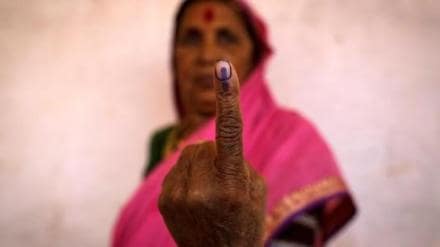The Election Commission of India (ECI) is tasked with the responsibility to monitor expenditure made for election, both by candidates as well as respective parties. For Lok Sabha constituencies, candidates are restricted to Rs 95 lakh, whereas for Assembly seats, the limit stands at Rs 40 lakh.
However, in certain smaller states and Union Territories, these caps are slightly lower, with Rs 75 lakh and Rs 28 lakh allocated for Lok Sabha and Assembly candidates, respectively. Interestingly, there is no expenditure limit for political parties.
Over the years, these spending limits have undergone adjustments, with revisions occurring as recently as 2019. In that year, the expenditure limits were set at Rs 70 lakh for Lok Sabha candidates and Rs 28 lakh for those contesting Assembly seats.
The expenditure limit refers to the maximum amount a candidate can legally expend on election-related activities such as public meetings, rallies, advertisements, posters, banners, and vehicles. It encompasses all costs associated with campaigning. Following the conclusion of an election, candidates are mandated to furnish their expenditure statement to the Election Commission (EC) within 30 days.
The poll body often revises the spending limit, and the cap was revised last time in 2022.
The last major revision in the election expenditure limit for candidates was carried out in 2014, which was further increased by 10 per cent in 2020. Simultaneously, the Election Commission formed a committee to study the cost factors and other related issues, and make suitable recommendations.
The Committee had invited suggestions from political parties, Chief Electoral Officers and Election Observers and found that there has been an increase in the number of electors and Cost Inflation Index since 2014 substantially. It also factored into the changing modes of campaigning, which is gradually shifting to virtual campaign.
Having regard to demand from political parties to raise existing election expenditure limit for candidates and increase in electors from 2014 to 2021 from 834 million to 936 million (up by 12.23%) and rise in Cost Inflation Index from 2014-15 to 2021-22 from 240 to 317 (up by 32.08%), the Committee had furnished its recommendations to enhance the ceiling limit.
The Lok Sabha elections are all set to be held in seven days, spanning from April 19 to June 1, encompassing seven phases. The counting of votes will be on June 4 that will determine the fate of candidates across 543 constituencies.
Coinciding with the parliamentary polls, Assembly elections are slated to unfold in four states— Andhra Pradesh, Arunachal Pradesh, Odisha, and Sikkim, with the results on June 4.
With the EC’s decisive announcement, the implementation of the Model Code of Conduct (MCC) is set in motion.
